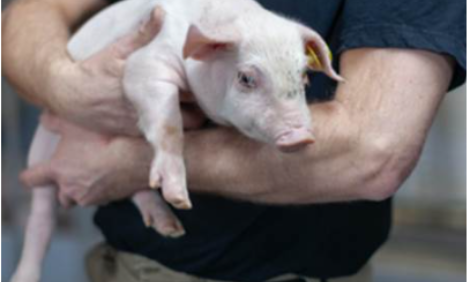



Maple syrup to improve gut microbiota and animal health
A probiotic made from maple syrup with flavor defects could theoretically enrich the gut microbiota of farm animals, improve their resistance to disease and reduce the need for antibioticsAbout 2% of the approximately 200 million pounds of maple syrup produced each year in Quebec, Canada suffer from a flavor defect that destines it to be used as an ingredient in processed products rather than to be consumed plain.
A team from Laval University and the University of Sherbrooke proposes using part of this syrup to produce a probiotic which could replace antibiotics in animal breeding. They have also just presented, in the scientific journal Fermentation, evidence which demonstrates that their idea holds water.
“Maple syrup produced at the end of the season has the most flavor defects, including bud-like flavor and stringy syrup. On the other hand, it is also the one that is richest in nutrients and antioxidant molecules,” underlines one of the signatories of the study, Marie Filteau, professor in the Department of Food Sciences and researcher at the Institute on nutrition and functional foods from Laval University.
To determine the processing potential of maple syrup in the production of probiotics, the researchers used it as an ingredient in a culture medium in which they inoculated Bacillus velezensis, a bacterium known for its production of antimicrobial molecules against plant pathogens.
“The idea was to create a food supplement containing this bacteria in order to enrich the intestinal microbiota of farm animals, improve their resistance to diseases and thus reduce the use of antibiotics,” explains Professor Filteau.
The culture tests were conclusive since the researchers managed to reach concentrations of 6 billion bacteria per milliliter. The resulting liquid was mixed with whey permeate and transformed into powder by atomization.
“It is this supplement that could be added to animal feed,” explains Professor Filteau.
In order to determine whether these bacteria can travel safely to the intestines of animals, the researchers subjected this probiotic to transit through a digestive system in vitro. Result? About 16% of bacteria survive the digestion process.
“Considering the initial abundance, we arrive at concentrations of a billion bacteria per gram. This is more than what is recommended to produce probiotic effects in animals,” underlines the researcher.
In light of these results, the researchers carried out tests on piglets.
“The results have not yet been published, but we can say that they are very encouraging. In addition, a technical-economic study should shed light on the economic feasibility of using processed maple syrup for the production of a probiotic supplement intended for animal feed,” concludes Professor Filteau.
This research comes from the doctoral work of Gautier Decabooter. The signatories of the study published in the journal Fermentation are Gautier Decabooter, Marie Filteau and Ismail Fliss, from Laval University, and Mariem Theiri and Denis Groleau, from the University of Sherbrooke.








